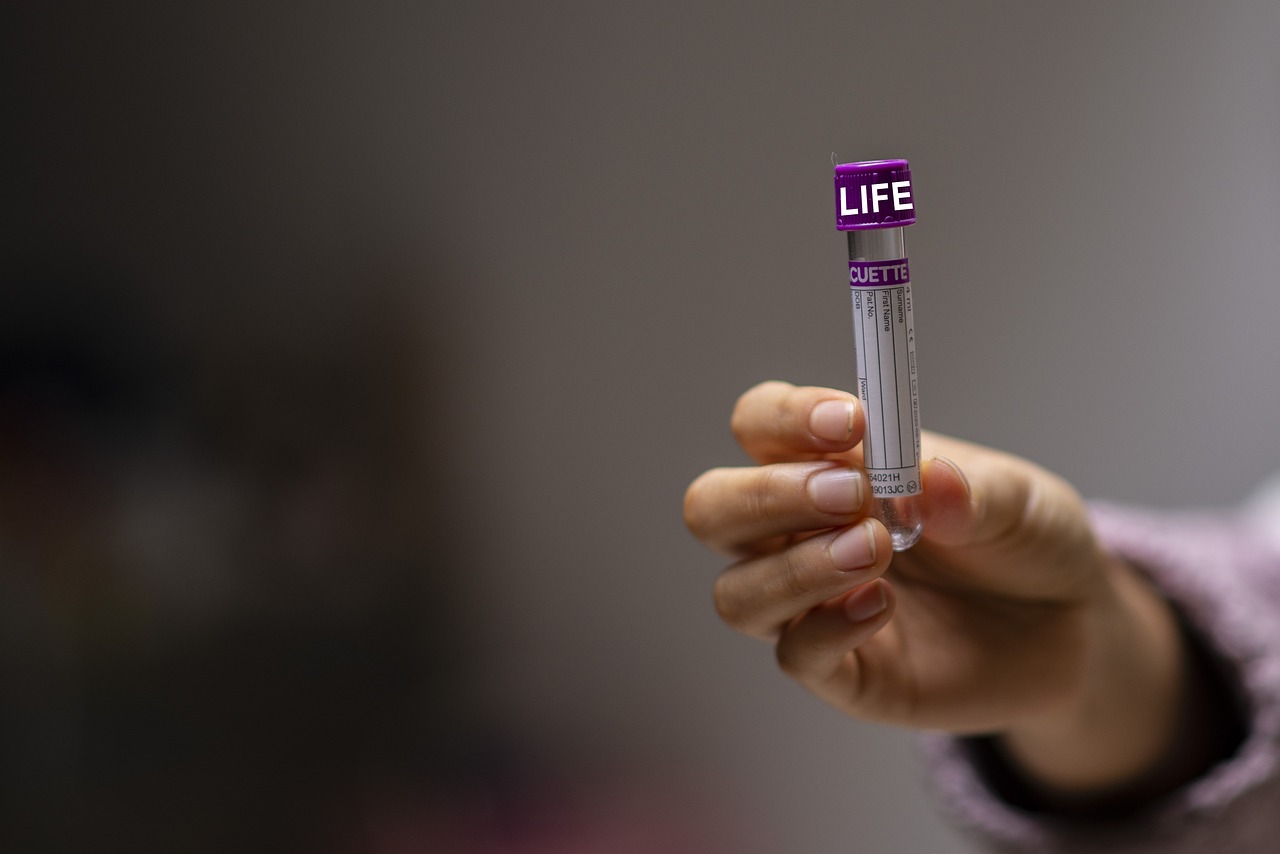When it comes to taking a pregnancy test after sex, timing is crucial for accurate results. Whether you are trying to conceive or concerned about a potential pregnancy, knowing when to take the test can provide clarity and peace of mind. Let’s delve into the factors that determine the ideal timeframe for taking a pregnancy test after intercourse.

Understanding Pregnancy Tests
When it comes to understanding pregnancy tests, it’s essential to grasp the different types available and how they function to detect pregnancy hormones in the body. These tests work by identifying the presence of human chorionic gonadotropin (hCG), a hormone produced during pregnancy, in urine or blood samples. The two primary types of pregnancy tests are urine tests, which can be done at home, and blood tests, typically conducted in a healthcare setting for more accurate results.
Urine pregnancy tests are convenient and widely used due to their accessibility and ease of use. They detect hCG levels in the urine, providing results within minutes. On the other hand, blood tests are more sensitive and can detect lower levels of hCG earlier than urine tests. Healthcare providers often recommend blood tests for confirmation in certain situations, such as detecting pregnancy at an early stage or monitoring hCG levels over time.
It’s important to note that the accuracy of a pregnancy test can be influenced by various factors, including the sensitivity of the test, the timing of the test in relation to ovulation, and the concentration of hCG in the body. Additionally, factors like medications, medical conditions, and improper test usage can also impact the reliability of the results. Understanding these factors can help individuals interpret their test results correctly and make informed decisions regarding their next steps.

Timing of Pregnancy Tests
When it comes to the timing of pregnancy tests, it’s crucial to understand the optimal windows for accurate results. Taking a pregnancy test too early after sex may lead to false negatives, while waiting too long could also affect the reliability of the results. Here are some key points to consider:
- Early Testing: Some pregnancy tests claim to provide accurate results even before a missed period. However, testing too early may not detect the low levels of pregnancy hormones in the body, leading to false negatives.
- Waiting for Missed Period: Waiting for a missed period is often recommended for more reliable results. This allows the pregnancy hormone levels to rise sufficiently for detection, increasing the test’s accuracy.
- Tracking Ovulation: If you are actively trying to conceive, tracking ovulation can help determine the best time to take a pregnancy test. Testing too soon after ovulation may result in false negatives.
Understanding the menstrual cycle and the timing of ovulation can play a significant role in determining when to take a pregnancy test. Additionally, factors such as the sensitivity of the test and individual hormone levels can also impact the timing of testing. It’s essential to follow the instructions provided with the pregnancy test kit and consult a healthcare provider for further guidance if needed.

Early Detection Tests
When it comes to early detection tests for pregnancy, there are various options available in the market designed to provide accurate results sooner rather than later. These tests are specifically formulated to detect lower levels of the pregnancy hormone hCG in your body, allowing you to potentially find out if you are pregnant earlier than with traditional tests.
One popular type of early detection test is the First Response Early Result test, known for its high sensitivity in detecting hCG levels as early as six days before your missed period. This test boasts a high accuracy rate, giving you the confidence you need in those crucial early days of uncertainty.
Another reliable option is the Clearblue Early Detection test, which also offers the ability to detect pregnancy hormones early on. These tests typically come in the form of easy-to-use sticks or digital displays, providing clear results within minutes.
It’s important to note that while early detection tests can give you a head start in knowing whether you are pregnant, they may not be as accurate as waiting until after you have missed your period. Factors such as the concentration of hCG in your urine and the timing of implantation can affect the reliability of these tests, so it’s always advisable to confirm results with a healthcare provider.

Missed Period Tests
When it comes to taking a pregnancy test after missing a period, timing is crucial. A missed period is often the first sign of pregnancy, prompting many women to reach for a pregnancy test kit. However, it’s essential to understand that taking a test too early may result in a false negative, leading to confusion and disappointment.
One approach to consider is waiting at least a week after your missed period to take the test. This allows for a higher level of pregnancy hormone, hCG, to build up in your system, increasing the accuracy of the results. Additionally, using a first-morning urine sample can further enhance the reliability of the test due to its concentrated nature.
It’s important to note that not all missed periods indicate pregnancy. Factors such as stress, hormonal imbalances, or underlying health conditions can also cause irregular menstrual cycles. Therefore, if you consistently experience irregular periods or suspect pregnancy but receive negative test results, consulting a healthcare provider is advisable.
Creating a checklist can help you keep track of your symptoms and menstrual cycle, aiding in determining the best time to take a pregnancy test. This can include noting the date of your last period, any unusual symptoms you may be experiencing, and whether you have been actively trying to conceive.
Remember, while at-home pregnancy tests are convenient and readily available, they are not foolproof. Seeking professional medical advice can provide clarity and guidance, ensuring that you receive the necessary support and information regarding your reproductive health.

Factors Affecting Test Results
When it comes to pregnancy tests, there are several factors that can affect the accuracy of the results. Understanding these factors is crucial in ensuring that you get reliable information about your pregnancy status. Let’s delve into some of the key elements that can influence the outcome of a pregnancy test:
- Timing: The timing of taking a pregnancy test can greatly impact the results. Testing too early or too late after a possible conception can lead to false negatives or positives.
- Medication: Certain medications, such as fertility drugs or hormonal supplements, can interfere with pregnancy test results. It’s essential to consult with a healthcare provider if you are taking any medication.
- Health Conditions: Underlying health conditions, such as polycystic ovary syndrome (PCOS) or thyroid disorders, can also affect the accuracy of a pregnancy test. These conditions may alter hormone levels in the body, leading to misleading results.
- Expired Tests: Using an expired pregnancy test can yield inaccurate results. It’s important to check the expiration date on the test kit before using it.
Considering these factors and ensuring that you follow the instructions provided with the pregnancy test can help you obtain reliable results. If you have any concerns about the accuracy of your test results, it’s best to seek advice from a healthcare professional for further evaluation and guidance.

Seeking Professional Advice
When it comes to regarding pregnancy test results, it is crucial to understand the significance of consulting a healthcare provider. These professionals are equipped with the knowledge and expertise to interpret test results accurately and provide guidance based on individual circumstances.
Here are some key points to consider when seeking professional advice:
- Confirmation of Results: Healthcare providers can confirm the results of a home pregnancy test through further testing, ensuring accuracy.
- Guidance and Support: They offer valuable guidance on next steps, prenatal care, and emotional support during this critical time.
- Medical History Evaluation: Professionals will consider your medical history, medications, and health conditions that may impact the pregnancy.
- Timing of Consultation: It is advisable to seek advice promptly after a positive home pregnancy test to begin proper prenatal care early.
By consulting a healthcare provider, individuals can receive personalized care and support tailored to their specific needs. This ensures a comprehensive approach to pregnancy testing and subsequent care, promoting the well-being of both the expectant parent and the developing fetus.